US veterans return to N. Dakota to shield native protesters from police attacks
US veterans have reportedly returned to Standing Rock Indian Reservation, vowing to shield indigenous protesters and activists opposed to the Dakota Access pipeline from likely attacks by a militarized police force.
Army veterans from across the US have either arrived in Cannon Ball area of the northern state of North Dakota, or are currently en route after press reports that President Donald Trump’s administration has allowed the oil corporation to finish drilling across the Missouri river, the UK-based Guardian reported Saturday.
According to the report, the increasing inflow of the military veterans into the area may make it more difficult for police and government authorities in their efforts to remove hundreds of activists, who remain camped near the construction site amid hopes that the move will limit the use of excessive force by police officers during protest rallies.
“We are prepared to put our bodies between Native elders and a privatized military force,” said a 34-year-old air force veteran, Elizabeth Williams, who arrived at Standing Rock along with a group of vets late on Friday. “We’ve stood in the face of fire before. We feel a responsibility to use the skills we have.”
This is while another 66-year-old veteran identified as Dan Luker, who visited Standing Rock in December and returned this month, stated that for many of the vets, who went to war in Vietnam or the Middle East it was “healing” to help water protectors.

“This is the right war, right side,” added Luker, a Vietnam vet from Boston. “Finally, it’s the US military coming on to Sioux land to help, for the first time in history, instead of coming on to Sioux land to kill natives.”
Luker further insisted that he was prepared to be struck by police ammunition if necessary saying, “I don’t want to see a twentysomething, thirtysomething untrained person killed by the United States government.”
According to the report, it remains unclear how many vets may arrive in Standing Rock, though some organizers estimate a few dozen are on their ways, while other activists state that hundreds could show up in the coming weeks.
An estimated 1,000 veterans traveled to Standing Rock in December just as the Obama administration announced it was denying a key permit to the oil company, a major victory for the tribe.
The massive turnout – including a ceremony, in which veterans apologized to the native Americans for the long history of US violence against the indigenous people – served as a powerful symbol against the $3.7 billion pipeline.
Since last fall, police forces have arrested nearly 700 protesters, at times deploying water cannons, Mace, rubber bullets, teargas, pepper spray and other less-than-lethal weapons, the report added, noting that private guards for the pipeline have also been accused of using violent measures.
VIDEO | Yemenis praise the military for its successful operations against Israel
VIDEO | Israel continues to bomb Gaza homes
VIDEO | An insider's view of the country: Meybod City in Yazd
‘All wars have rules. All of those rules have been broken’ by Israel
VIDEO | Report flags India’s violation of rights of Rohingya detainees
Turkey's foreign minister meets Syria's de facto leader in Damascus
VIDEO | US Syria plots
'Next to impossible' to rescue patients from Gaza's Kamal Adwan Hospital: Director


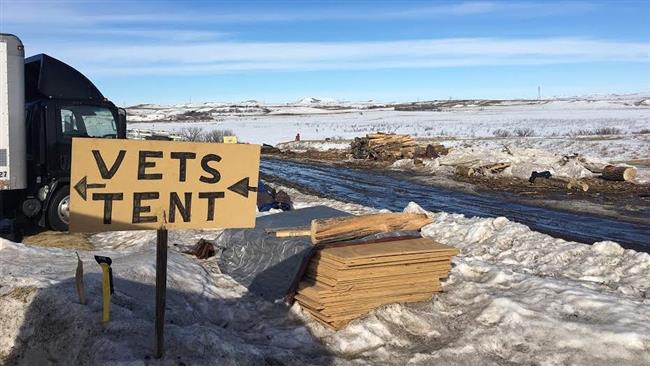
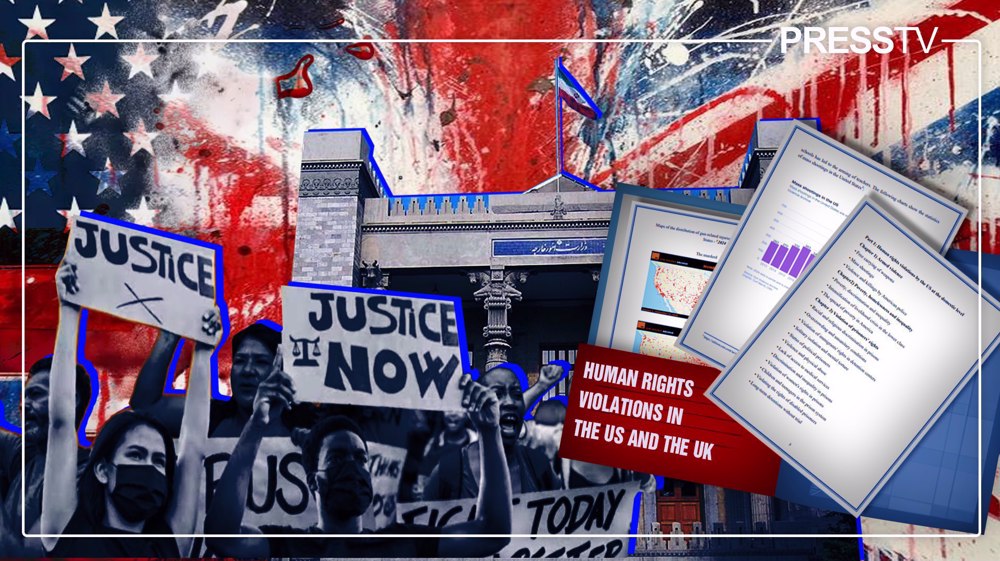
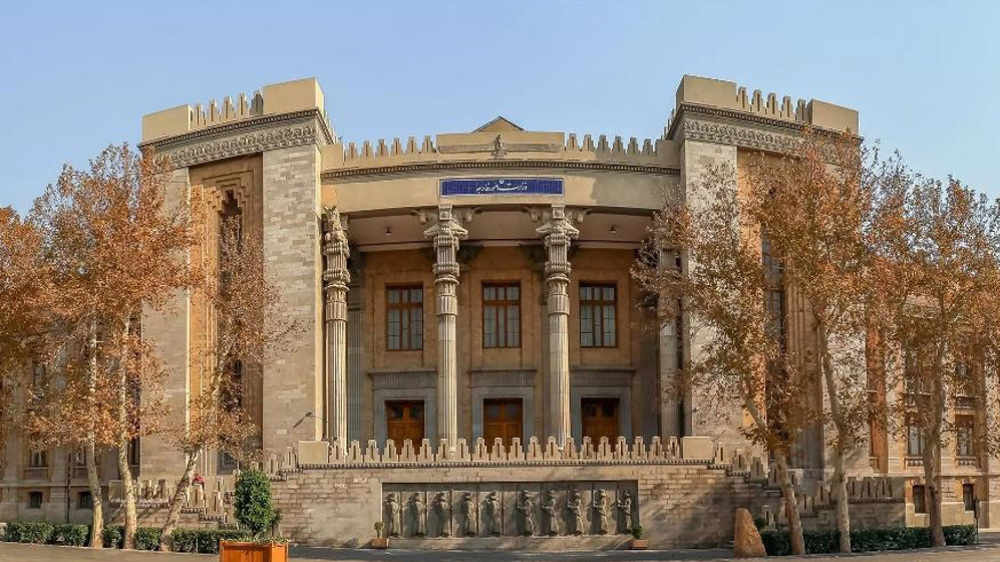




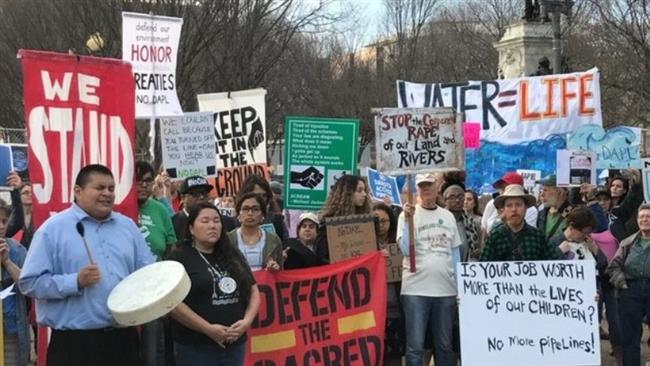
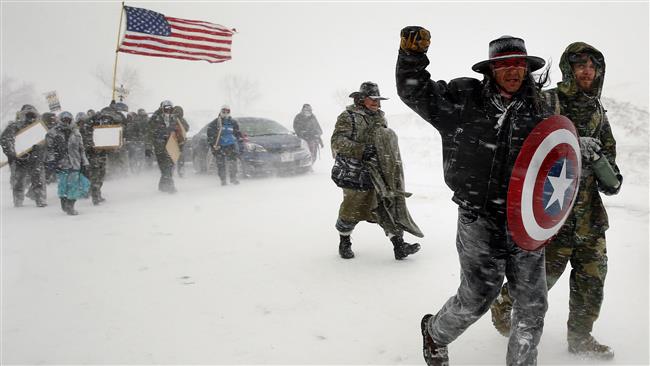


 This makes it easy to access the Press TV website
This makes it easy to access the Press TV website